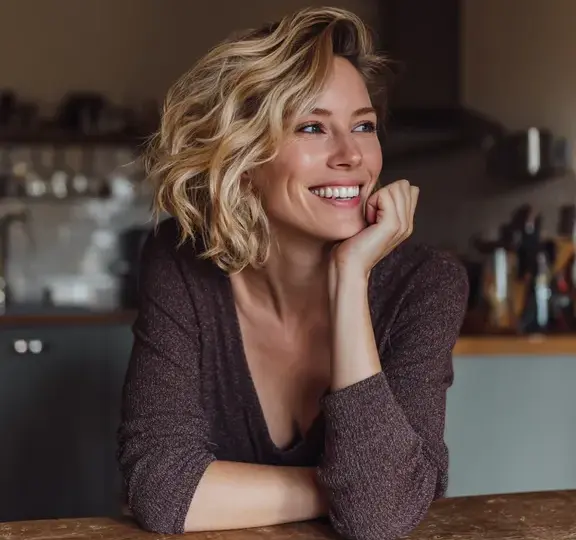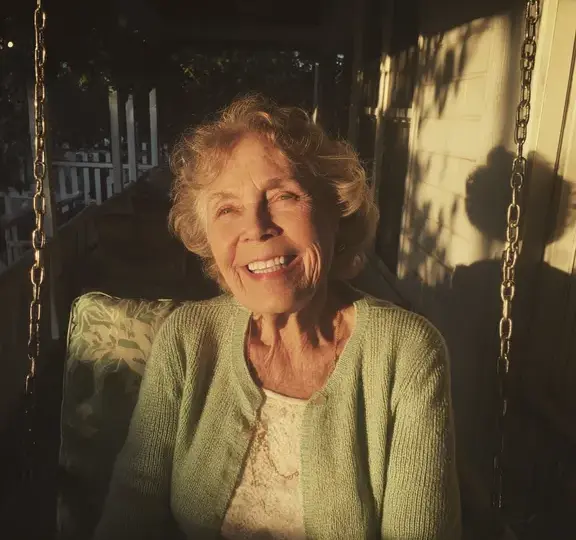I Cared for My Ailing Grandmother and Took Home Her Antique Couch — Then I Discovered a Hidden Zipper
When Lila cared for her dying grandmother, she never expected to inherit anything beyond memories. But inside an old couch, she discovered a secret that revealed the true meaning of love, family, and legacy. If someone had told me that an old couch would become the most valuable thing I owned, I might have laughed. Not for its material value, but for what it represented. Everything changed the day my grandmother, Mabel, took her final breath. She wasn’t just my grandmother — she was my safe place, my guide, and the one person who truly understood me.
My mother, Clara, had spent most of my childhood chasing her own life, leaving gaps that Mabel quietly filled. Mabel was always there. She attended school plays, bandaged scraped knees, comforted heartbreaks with her spicy chicken soup and cinnamon donuts. She didn’t just fill the gaps my mother left — she stitched them closed with love. When Mabel was diagnosed with terminal cancer, I didn’t hesitate. I took unpaid leave, packed up my two children, and moved into her small yellow house with the creaky floors and overgrown hydrangeas. It wasn’t a sacrifice — it was my chance to repay the love she had always shown me.
Clara, of course, was on a three-month cruise through Europe. “Hospitals make me sick,” she said, dismissing her absence. “You’ve always been sentimental, Lila. You can handle this.” She didn’t arrive until after Grandma Mabel passed away. When she did, all she cared about was what she could take: the house, the jewelry, the money. Not the couch. Not the faded, peach-colored couch with floral trim and sagging cushions that held Mabel’s real secret. Before she died, Mabel allowed me to give back the care she had always provided. I bathed her, brushed her hair, read to her, and slept on the floor beside her bed.

She shared stories and memories she hadn’t trusted anyone else with, and I held her hand as she took her final breath. Three days later, Clara arrived, tanned and refreshed from her trip. “Well, Lila,” she said, already calculating what she could claim. “What’s the situation with the house and the jewelry?” The estate lawyer explained the will. The house went to Clara. The jewelry wasn’t mentioned. But one item was left specifically for me: the old peach-colored couch from the parlor. My mother laughed dismissively, but I understood its importance.
It was Mabel’s way of leaving something tangible, a piece of her love and care, specifically for me. Marcus, my lifelong friend, helped me move the couch home. As I ran my hands over its faded fabric, I felt the warmth of every hug, bedtime story, and cup of cocoa my grandmother had given me. The couch wasn’t just furniture — it was memory, love, and legacy sewn into its seams. While cleaning the couch, I discovered a hidden zipper under the middle cushion. Inside was a black velvet bag containing small jewelry boxes and an envelope addressed to me in Mabel’s delicate handwriting.
The letter read:
“My dearest Lila,
If you are reading this, you have found the treasures I meant for you. I wanted to leave you my grandmother’s jewels, but I knew your mother would take them if she found them. I hid them where she would never think to look. You stayed, cared, and never asked for anything in return. These are yours, not for the money, but because of your love. One day, pass them to Elsie. I love you. – Granny M.”

Inside the boxes were pearls, emeralds, and diamonds — heirlooms meant to symbolize love and trust, not wealth. Each piece felt like a hug, a reminder of every moment Mabel had been present in my life. Clara never noticed the couch, nor did she care. I kept it safe. I had my children, my memories, and the love my grandmother had left behind. Sitting on the couch late one quiet evening, I held the letter to my chest, feeling her presence as if she were there beside me.
Later, I dressed in a little black dress I hadn’t worn in years. I wore the emerald earrings from the velvet bag and looked in the mirror. I didn’t see a tired mother or grieving granddaughter. I saw a woman who had survived grief, honored love, and emerged quietly radiant. Marcus came by, carrying groceries, and laughed when he saw the earrings. “Are you ever going to tell her?” he asked, nodding toward the couch.
“Tell who?” I asked. “Clara,” he said, grinning. “She wouldn’t believe me. Even if she did, it wouldn’t matter.” “Fair enough,” he said. “Besides, you’ve already won.” I smiled. “Yeah. I have.” Weeks later, I shared the story with my oldest friend, Emma, over tea. The kids were building a LEGO tower at the table while I described the hidden zipper, the velvet bag, and the jewels. “She left it in the couch?” Emma asked, stunned.
“Yes,” I said, laughing. “She hid it where my mother would never look. She knew that only I would see it, and only I would care.” That night, after the children were asleep, I curled up on the couch with the letter again. I read it slowly, savoring every word. “Thank you, Granny,” I whispered into the quiet room. “Thank you for everything.” The couch smelled faintly of lavender, Mabel’s favorite scent, and I could almost feel her smile, the one she always wore when proud but trying not to fuss. I smiled back through my tears. Love matters more than anything, and cleverness runs in our blood.
As I left for dinner one evening, dressed up with the earrings glinting in the light, I paused by the couch. It wasn’t just furniture. It was Mabel, still with me, tucked into the cushions, guiding me forward. She always would be.


